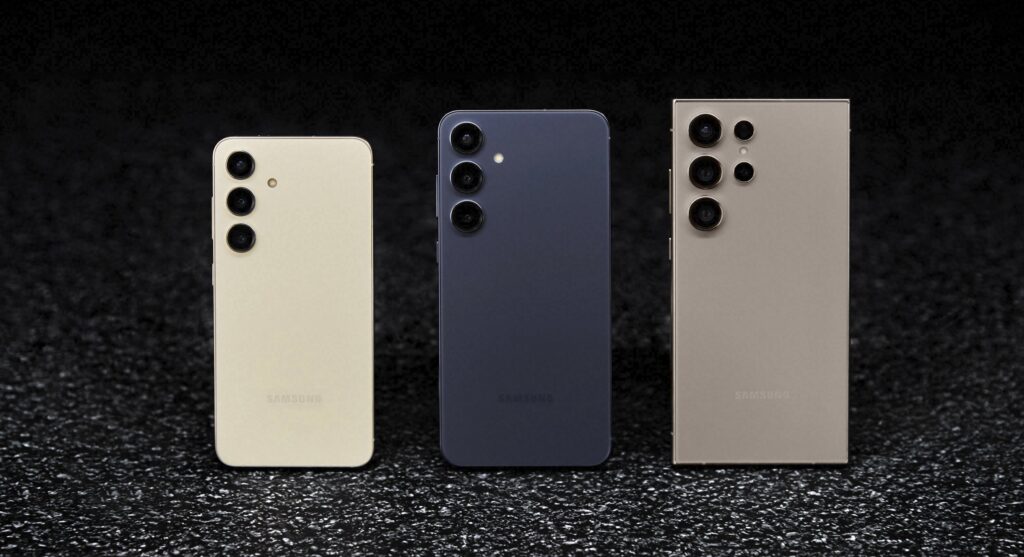
Samsung Galaxy S24 series – Exynos 2400 benchmarks vs Snapdragon 8 Gen 3 for Galaxy
The Samsung Galaxy S24 series has officially been launched in Malaysia and uses their own Exynos 2400 processor for the Galaxy S24 and Galaxy S24 Plus with the Galaxy S24 Ultra using the Snapdragon 8 Gen 3 for Galaxy processor.
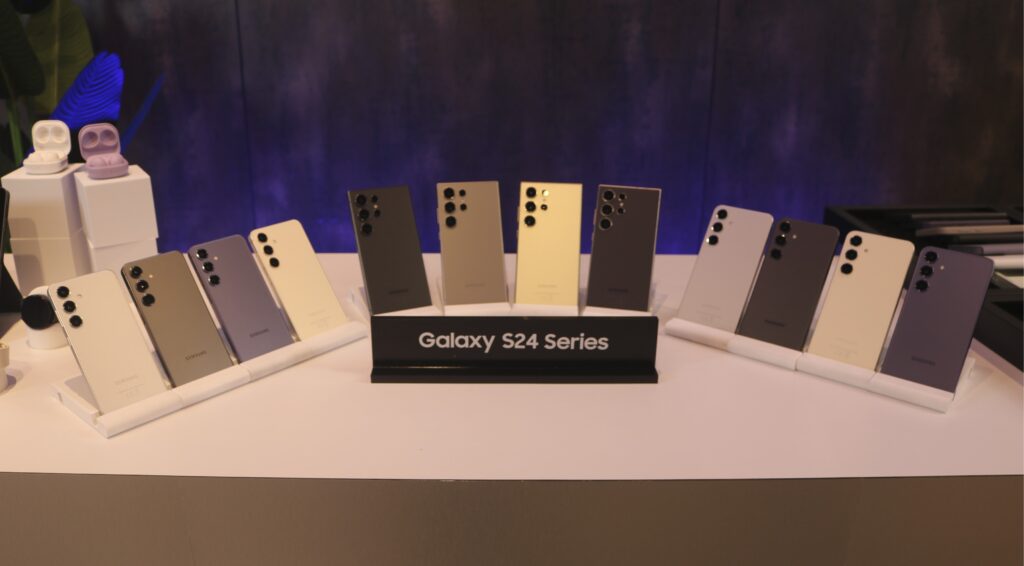
Some regions such as the United States and China utilise a Snapdragon 8 Gen 3 for Galaxy processor for the Galaxy S24 and Galaxy S24+ but by and large, most other regions use Samsung’s own Exynos 2400 chipset including us in Malaysia but what is it exactly and how does it stack up to the Snapdragon 8 Gen 3 for Galaxy?
What is the Exynos 2400 and Snapdragon 8 Gen 3 for Galaxy processor ?
The Exynos 2400 processor is a new deca-core processor from Samsung’s own foundries that consists of a single Cortex-X4 core running at 3.2GHz, five Cortex-A720 cores with two running at 2.9GHz and three at 2.6GHz as well as a quartet of Cortex-A520 cores running at 1.95GHz paired with an Xclipse 940 GPU built on AMD’s latest RDNA 3 GPU architecture with hardware-accelerated ray-tracing support.
On paper, the Exynos 2400 is rated to offer 70% faster performance and a 40% faster GPU than the prior Exynos 2200 which is quite a performance boost.
Of note is that the Exynos 2400 is rated to offer a 14.7x faster improvement in AI performance over the prior Exynos 2200; necessary seeing that these are their first AI phones which integrate Galaxy AI as a core aspect of its functionality.
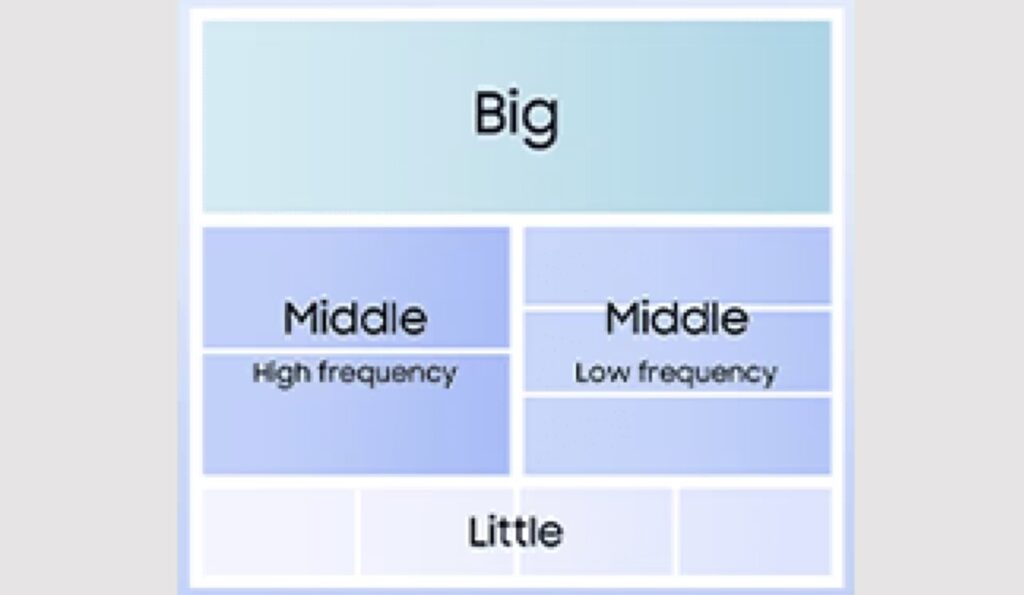
Exynos 2400 core design
To keep the chipset cool beyond the installation of larger vapour chambers in each of the Galaxy S24 series phones, the Exynos 2400 also integrates what Samsung refers to as a Fan-out Wafer Level Package (FOWLP) that improves heat dispersion and in turn ensures better sustained performance under heavy loads. According to the official literature, FOWLP is able to offer a 23% improvement in heat resistance in single-core tasks and 8% improvement in multi-core tasks.

FOWLP on the Exynos 2400 [Image- Samsung]
The Snapdragon 8 Gen 3 for Galaxy is made by Qualcomm and utilises their Kyro CPU with a single Prime core, five Performance cores and two Efficiency cores. The ‘for Galaxy variant’ unique to the Galaxy S24 Ultra enjoys a slightly higher 3.39Ghz clock speed versus the 3.3GHz in the stock version.
The clock speed on the Performance and Efficiency cores isn’t listed in official literature but XDA-Developers states that they are clocked slightly lower by 100MHz presumably to better manage heat. On paper, the stock variant of the Snapdragon 8 Gen 3 hosts five 3.2GHz performance cores, two 2.3GHz efficiency cores as well as an Adreno GPU which is rated to be 25% faster, 25% more power efficient and to have 40% better ray tracing capabilities.
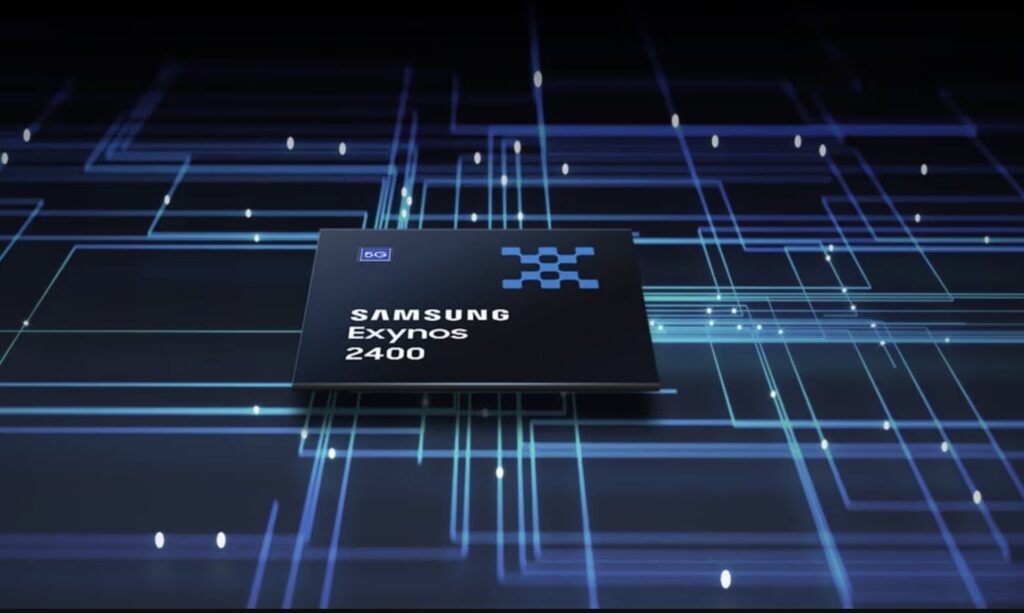
[Image Samsung]
The chipset also hosts a Hexagon NPU that offers faster performance and efficiency for generative AI tasks. On paper, the stock Snapdragon 8 Gen 3 is rated to offer 30% better performance and 20% more power efficiency than the Snapdragon 8 Gen 2 chipset.
How does the Exynos 2400 perform vs the Snapdragon 8 Gen 3 for Galaxy?
We’ve reviewed the Exynos 2400-equipped variants of the Galaxy S24 and Galaxy S24+ as well as the Snapdragon 8 Gen 3 for Galaxy packing Galaxy S24 Ultra. While we’ve benchmarked them individually, for the purposes of this feature we’re testing them all simultaneously.
In general, the Exynos 2400 outpaces its predecessor the Exynos 2200 by a comfortable margin and in Geekbench 6 managed to outpace the Snapdragon 8 Gen 2 for Galaxy used in the older Galaxy S23 Ultra in Geekbench 6’s multicore test. While it outguns its predecessors, the question remains – how does it stack up to its current generation contenders?
While the Snapdragon 8 Gen 3 for Galaxy outpaces the Exynos 2400 in single and multicore performance in benchmarks, the Exynos 2400’s raytracing capabilities in the 3d Mark Solar Bay benchmark test outpaced it which makes it a better choice for ray tracing performance in games that support it. In the Solar Bay stress test, the Exynos 2400 equipped Galaxy S24 and Galaxy S24+ both had better stability too.
| Benchmark | Samsung Galaxy S24 | Samsung Galaxy S24+ | Samsung Galaxy S24 Ultra |
| Geekbench 6 Single core | 2,158 | 2,174 | 2,309 |
| Geekbench 6 Multi Core | 6,778 | 6,768 | 7,076 |
| Geekbench6 OpenCL | 15,349 | 13,511 | 15,259 |
| Geekbench6 Vulkan | 15,455 | 13,082 | 13,898 |
| Solar Bay | 8,072 | 5,778 | 7,782 |
| Solar Bay Unlimited | 7,553 | 5,785 | 7,097 |
| Wild Life Extreme | 3,047 | 2,379 | 4,043 |
| Wild Life Extreme Unlimited | 2,843 | 2,309 | 3,521 |
| Solar Bay stress test (Maximum loop score, minimum loop score, stability %) | 5,961, 4,022, 67.5% | 4,888, 3,550, 72.6% | 6,703, 3718, 55.5% |
Be that as it may, all three of the Galaxy S24 series phones acquitted themselves well with excellent overall performance for work or play in our field tests along with great battery life and camera performance. Plus, Galaxy AI is starting to prove itself useful indeed.
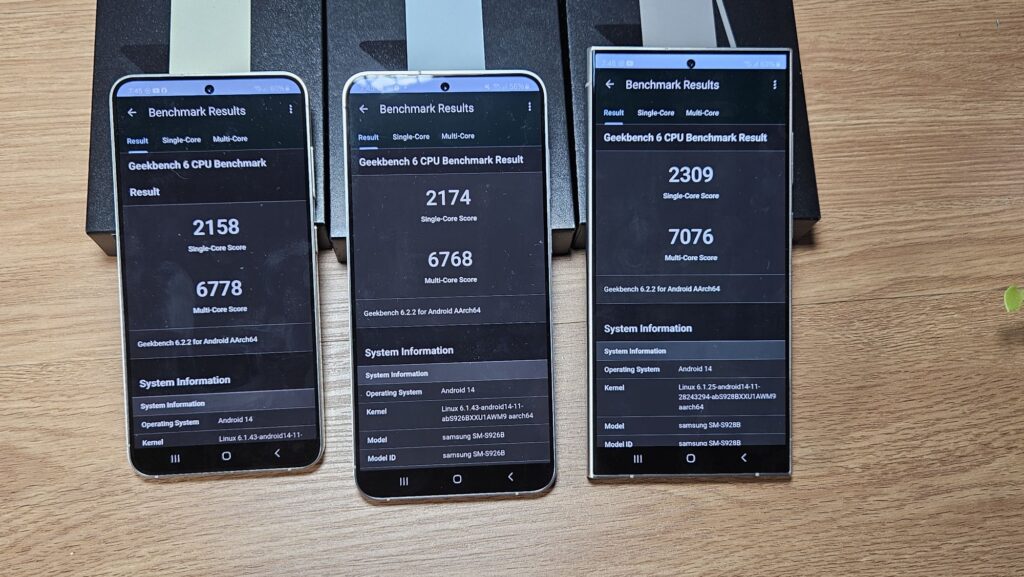
Geekbench 6 scores
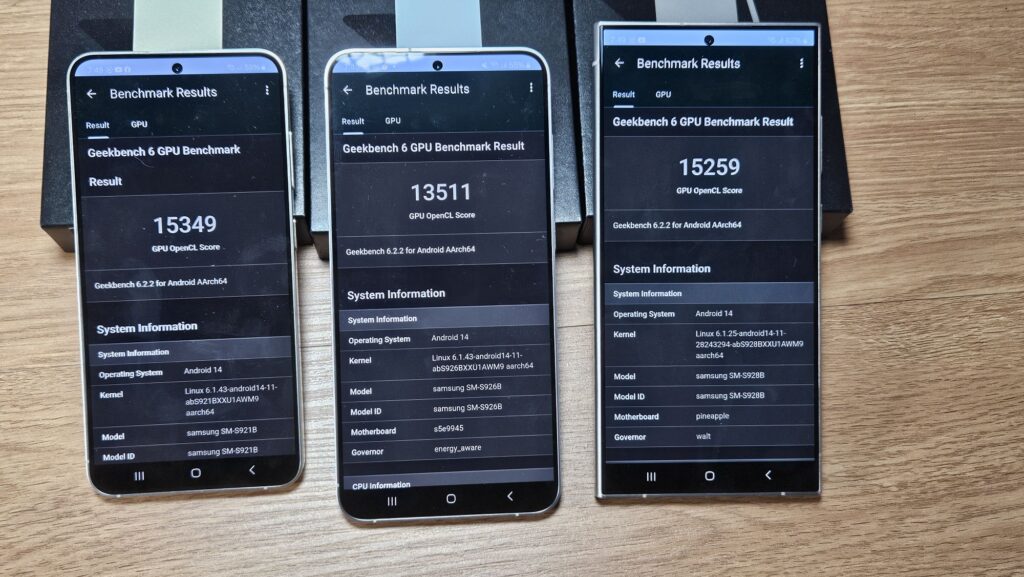
Geekbench 6 OpenCL scores
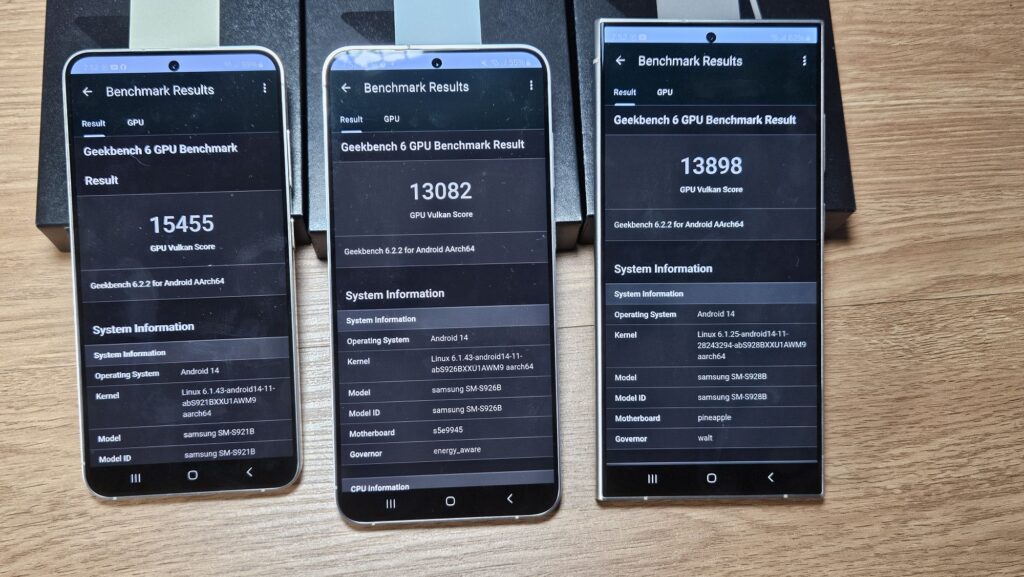
Geekbench 6 vulkan benchmarks
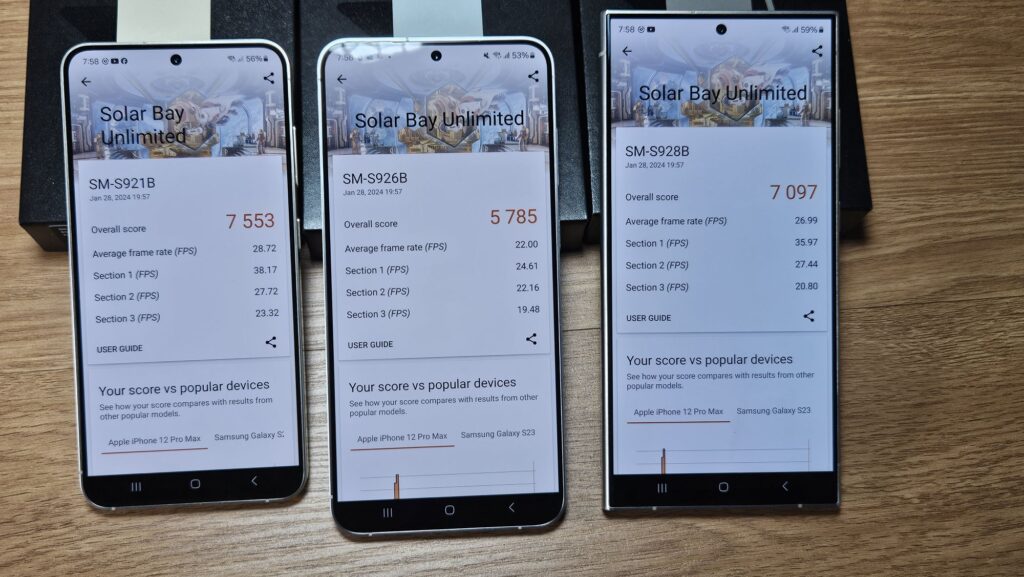
3DMark Solar Bay Unlimited benchmarks
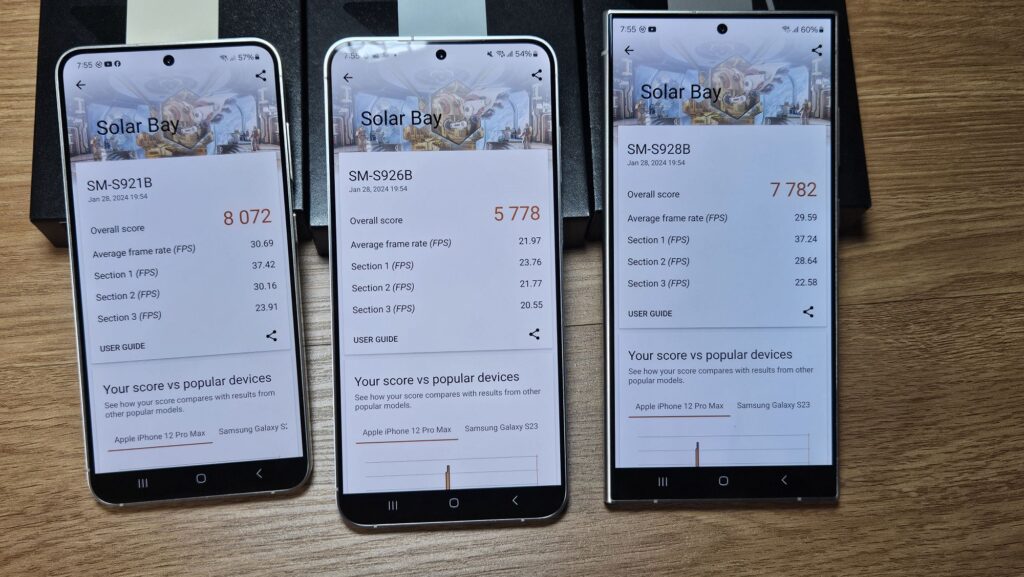
3DMark Solar Bay benchmarks
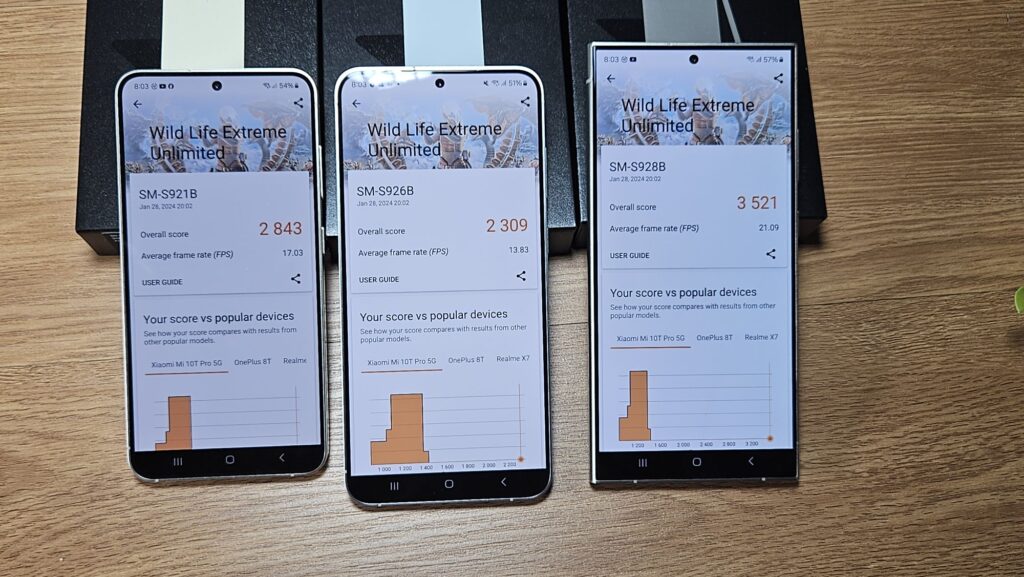
3D Mark wild life extreme unlimited benchmarks
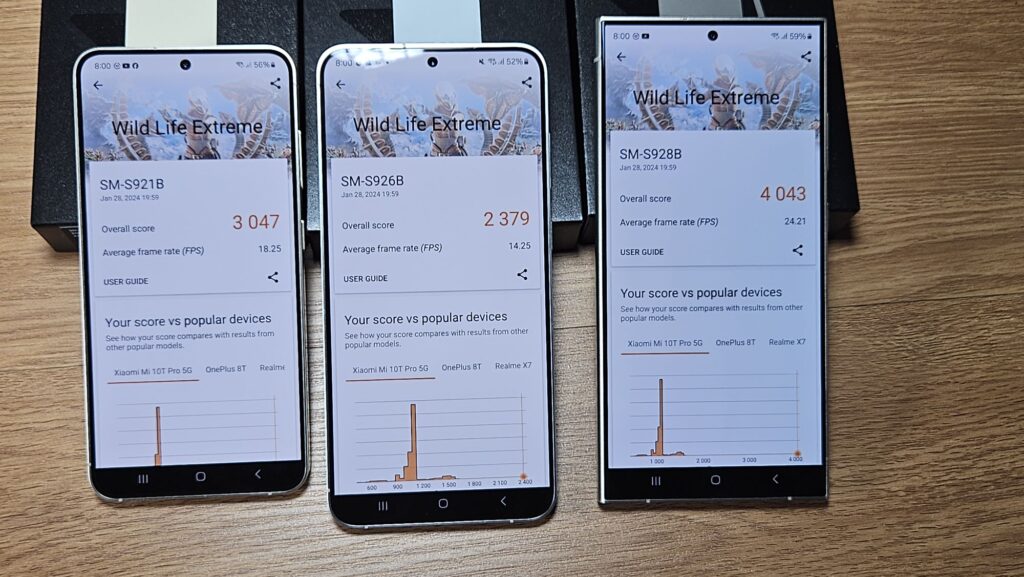
3D Mark Wild Life Extreme benchmark
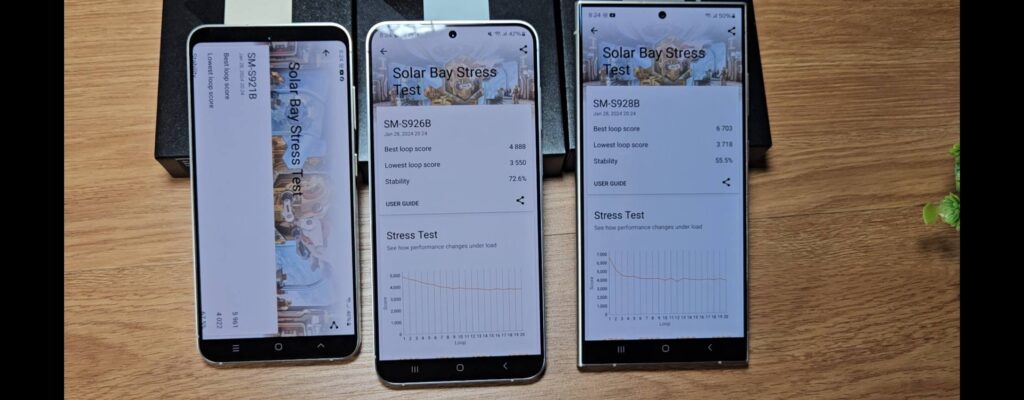
Solar Bay stress test for the Exynos 2400 (S24 and S24+ on the left and middle) and the Snapdragon 8 Gen 3 for Galaxy (S24 Ultra on the right)
If you’re wondering which phone to get, you can check out our special feature here. You can also peruse our Galaxy S24 Ultra review here, our Galaxy S24 Plus review here and our Galaxy S24 review here for a closer indepth look. You can also take a gander our feature on Galaxy AI here.
To preorder the Galaxy S24 and Galaxy S24 Plus, you can check out Samsung’s official online store at https://www.samsung.com/my/smartphones/galaxy-s24/buy/ To acquire the Galaxy S24 Ultra, you can check out their link at https://www.samsung.com/my/smartphones/galaxy-s24-ultra/buy/
